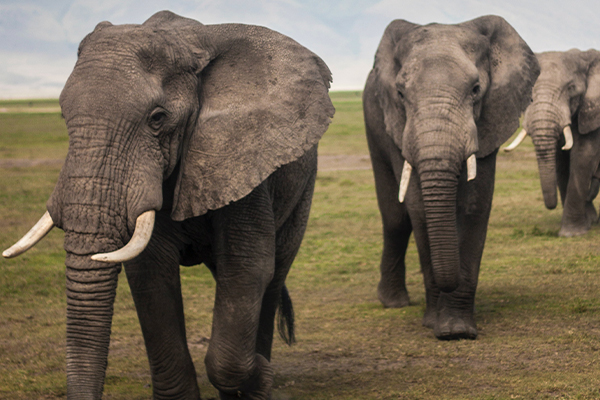In Africa, the elephants take over the most significant role in its environment and provide a crucial impact on the ecology in many ways, such as taking down trees, making watering holes, trampling grasses, and enhancing soil condition.
One of the most significant role that elephants play in the ecosystem is that they are the “gardener” in our environment. Elephant dungs are the fertilizer in nature, which is conductive to improve the quality of soil. Also, they are useful for the baboons and birds, who are diligent in seeking for nuts as well as seeds in droppings. Being beneficial to the growers, the nutritious manure existed in the dungs replaces nutrients to soil depletion to help them have better crops. The droppings of the elephants in the forests of Africa are also a type of seed transmission that generate a more diversified plants.
Another role of African elephants is to take the trees down and break thorn bushes up. In consequence they create grass and salt licks so that the lives of other species can be easier considering their survival environment. The last role is that the water holes are dug in dry river beds. The function is beneficial to other natural lives to have easily accessible water sources.


